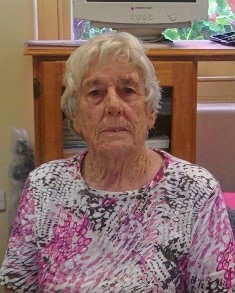Margaret put down the letter she had just read. It did not contain happy news. One of her friends wanted to see her as she had been diagnosed with a terminal illness and wanted to talk to her before she underwent palliative care.
Although her friend Coral resided some three hours away by car, Margaret promptly cancelled all of her appointments and made arrangements to visit her.
As the outer suburbs of the city were left behind, Margaret began to ponder why her friend had never married. She was always in the wedding parties of her mutual friends. No matter how hard they tried to match her up with some of their male friends, she remained single. ‘Dedicated to her career’ was the conclusion arrived at.
When Margaret arrived at her friend’s home, she was shocked to see how ill she looked. The usual greetings over, they sat outside on the verandah and began to talk. The usual news about both their doings were discussed and, in a lull in the conversation, Coral drifted into a sleep.
Margaret sat quietly and after a few minutes decided to look around the garden, when Coral spoke. ‘Don’t go, I haven’t finished talking.” So down Margaret sat.
Quite suddenly Coral spoke again.
“I know you all wondered why I never married. So now I will tell you. I met someone years ago I fell deeply in love with, so much so that he was never out of my thoughts. We used to see each other at various functions. Our eyes would meet across the space and I knew he felt the same. It was a lovely affair, and I used to think what life would be like with him by my side for ever.
This affair went on for years, until I was diagnosed with this illness, and I knew I had to face truth and reality. The man I had such deep feelings for was out of my reach and world. I had kept up the fantasy, that one day we would be together, would happen.
I am also one of those persons that can love only once in a lifetime. It wasn’t my career that kept me single, it was an affair of the mind.
You can tell our friends why I never married, because I know you all used to speculate why.”
There was silence for a while.
Margaret asked , “Who was this person?”and Coral replied “You really do not want to know”
Three weeks later Coral passed away, her secret with her.
Shirley Roberts
December 2017
Although her friend Coral resided some three hours away by car, Margaret promptly cancelled all of her appointments and made arrangements to visit her.
As the outer suburbs of the city were left behind, Margaret began to ponder why her friend had never married. She was always in the wedding parties of her mutual friends. No matter how hard they tried to match her up with some of their male friends, she remained single. ‘Dedicated to her career’ was the conclusion arrived at.
When Margaret arrived at her friend’s home, she was shocked to see how ill she looked. The usual greetings over, they sat outside on the verandah and began to talk. The usual news about both their doings were discussed and, in a lull in the conversation, Coral drifted into a sleep.
Margaret sat quietly and after a few minutes decided to look around the garden, when Coral spoke. ‘Don’t go, I haven’t finished talking.” So down Margaret sat.
Quite suddenly Coral spoke again.
“I know you all wondered why I never married. So now I will tell you. I met someone years ago I fell deeply in love with, so much so that he was never out of my thoughts. We used to see each other at various functions. Our eyes would meet across the space and I knew he felt the same. It was a lovely affair, and I used to think what life would be like with him by my side for ever.
This affair went on for years, until I was diagnosed with this illness, and I knew I had to face truth and reality. The man I had such deep feelings for was out of my reach and world. I had kept up the fantasy, that one day we would be together, would happen.
I am also one of those persons that can love only once in a lifetime. It wasn’t my career that kept me single, it was an affair of the mind.
You can tell our friends why I never married, because I know you all used to speculate why.”
There was silence for a while.
Margaret asked , “Who was this person?”and Coral replied “You really do not want to know”
Three weeks later Coral passed away, her secret with her.
Shirley Roberts
December 2017



 RSS Feed
RSS Feed
